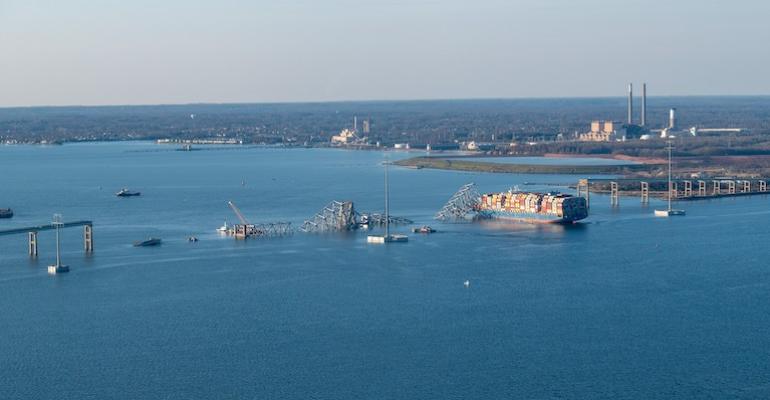Commissioner Carl Bentzel wrote to President Biden thanking him for the administration’s response to the accident in the immediate aftermath of the 26 March event which saw the collapse of the bridge but that has meant that all but the smallest vessels have now been unable to access the Baltimore terminals.
“During the pandemic, Congress passed the Coronavirus Aid, Relief, and Economic Security Act, commonly referred to as the CARES Act. Section 4112 of that legislation authorized and provided funding to the US Department of the Treasury to make payments to workforces devastated by the massive economic swings during the pandemic,” wrote Bentzel.
He added that the aviation industry used by passengers, cargo and other contractors benefitted from the payments of employee salaries as a result of that aide provided by that legislation.
According to Bentzel that resulted in more than $66 billion being paid out over the course of the pandemic to the aviation industry between 2020 to 2022.
“In the wake of the Francis Scott Key Bridge collapse, there are local companies and workers suffering from an economic upheaval. The CARES Act can serve as a model for providing relief to impacted workers and industries,” said Bentzel.
He further pointed out to Biden that the maritime industry never stopped working during the pandemic.
“Other service industries, such as aviation, were forced to stay home during the height of the pandemic, it was maritime and intermodal services that kept delivering what turned out to be record setting cargo volumes.”
Members of the maritime industry and community now need relief. “Thousands of employees in the Baltimore region are directly or indirectly reliant on the port for their livelihood. We should support them in their period of need to the same level as we did other transportation workers during the pandemic.”
Bentzel said he has not identified the amount of relief needed, but instead is arguing that the process which could be administered to help those affected in the aftermath of the Dali crash.
Staff such as the longshoreman are suffering while the terminals are down, but there are other businesses including trucking, railways, warehousing and logistics that are also impacted by this situation.
A similar type of aide that aviation and transit workers received during the pandemic “straight payments” would help those in need at this critical time, according to Bentzel.
Meanwhile, the FMC said that an optimistic estimate suggests the port could be back up and running by the end of May, “They [the clearance staff] are making great progress,” said the FMC.
Copyright © 2024. All rights reserved. Seatrade, a trading name of Informa Markets (UK) Limited.
Add Seatrade Maritime News to your Google News feed.  |
